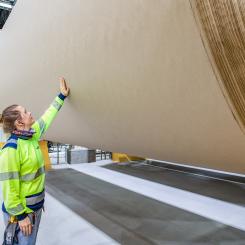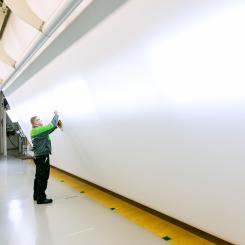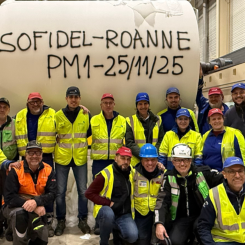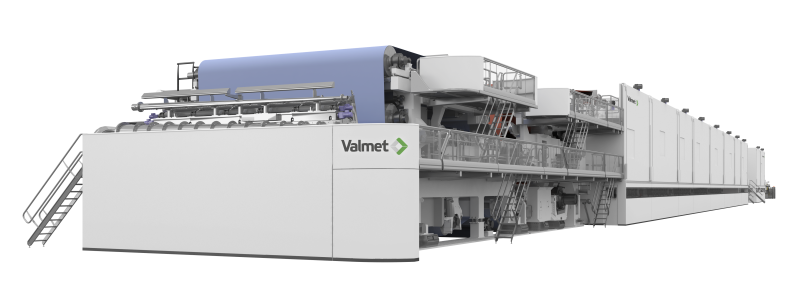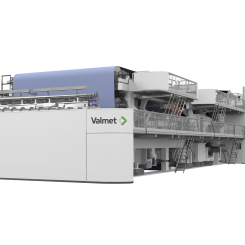Increase in trade and insufficient transport capacities exacerbates raw material situation. Koehler Paper uses long-term raw material planning to safeguard its delivery commitments. Focus on supply chain management.
The coronavirus pandemic caused global disruption to raw material production and also to international shipping. After just six months, global trade had recovered, resulting in a lack of empty containers in container logistics and insufficient transport capacities in international shipping. The situation deteriorated further at the end of March with the grounding of the “Ever Given” container ship.
The consequences of these developments were global delays in raw material deliveries and the availability of these materials. All of these factors are now resulting in cost increases, some of them substantial, including in the paper industry, and Koehler Paper is also being affected by these.
The events of the past months mean that there is an increasing focus on the role of procurement departments, on which there is particular pressure in the current crisis to guarantee reliable production supply. Like other companies in the paper industry, Koehler Paper is being confronted by often significantly longer delivery times worldwide.
Klaus Krieg, Head of Supply Chain Management at Koehler Paper, stated: “Many of our suppliers already apply the clause regarding force majeure in their contracts with us, due to the critical supply situation for raw and ancillary materials.” On top of this, there is a global shortage of containers and shipping capacity, which is further extending delivery times by four to six weeks.
Long-term strategy
Koehler Paper implemented long-term strategies at an early stage to ensure the availability of raw materials. Risk analyses were prepared for all the major raw materials and then used to develop a supplier strategy. Inventory management of critical raw materials is being constantly adjusted in view of the situation. “Just in time” delivery is a thing of the past, today the focus has shifted to “just in case” models and building up reserves of critical raw materials. Koehler Paper was helped in the difficult raw materials situation by its direct, long-standing, and close relationships with suppliers around the world. Annual supplier contracts also helped to guarantee the supply of raw materials.
However, it is not just the shortage of raw materials that is causing turmoil in the global paper industry. In addition to the problems with procurement, companies are also experiencing logistics issues with deliveries to customers. Koehler Paper therefore relies on a diversified supply chain to cope with these issues. Its winning formula is a combination of transport by rail and by ship via various ports for its deliveries from Asia. Cargo space for containers in international shipping is a particularly scarce commodity at present. It is being reserved for customer deliveries a long way in advance. Koehler Paper arranges and monitors shipping to the destination port to ensure that the agreed delivery dates will be met.
The huge increases in raw material and logistics prices across all sectors are already being passed on to customers in the form of price increases. Further price increases will be inevitable. However, the company has managed to ensure production and supply to customers so far, even if delays in the oversees business have not been entirely avoidable.







